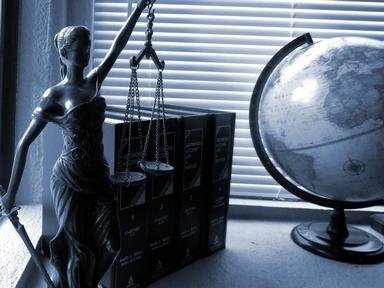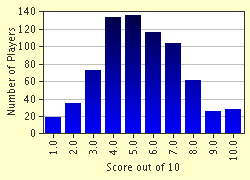Quiz Answer Key and Fun Facts
1. The famed Greek philosopher Socrates went on trial in 399 B.C. Whose work provides us with the greatest source of information about the trial of Socrates?
2. Another famous trial of ancient times was that of Jesus, which was held C. 30 A.D. What was the name of the location of Jesus' execution?
3. Which of these famous historical figures went on trial for heresy in the year 1431?
4. In 1521, the famed Protestant theologian Martin Luther stood before the Diet of Worms where he was ordered to recant. Who was the Holy Roman Emperor responsible for Luther's summons?
5. Another significant trial of the 16th century: In which year did the famous trial and execution of Sir Thomas More, former Lord High Chancellor of England, take place?
6. In the history of humankind, there have been a number of great injustices performed on individuals whose sole motivation is human progress. Which of these great scientists was a victim of one such injustice when he went on trial in 1633?
7. In the history of England, only one currently reigning monarch has ever been forced to trial for treason. Who was the unlucky potentate to have suffered this indignity?
8. One of the most ghastly periods in American history took place in 1692 when a series of trials at Salem Village, Massachusetts helped determine the ultimate fate of twenty individuals, all charged with practicing 'witchcraft'. What was the preferred method of execution for the victims of the Salem Witch Trials?
9. The 1735 trial of John Peter Zenger in New York City regarded which of the following freedoms now taken for granted in the United States?
10. Another important set of trials of the American colonial period were that of the perpetrators of the Boston Massacre of 1770. Which of these famous American Founding Fathers was an attorney for the defense (the soldiers) in these cases?
Source: Author
thejazzkickazz
This quiz was reviewed by our editing team before going online.
Any errors found in FunTrivia content are routinely corrected through our feedback system.

